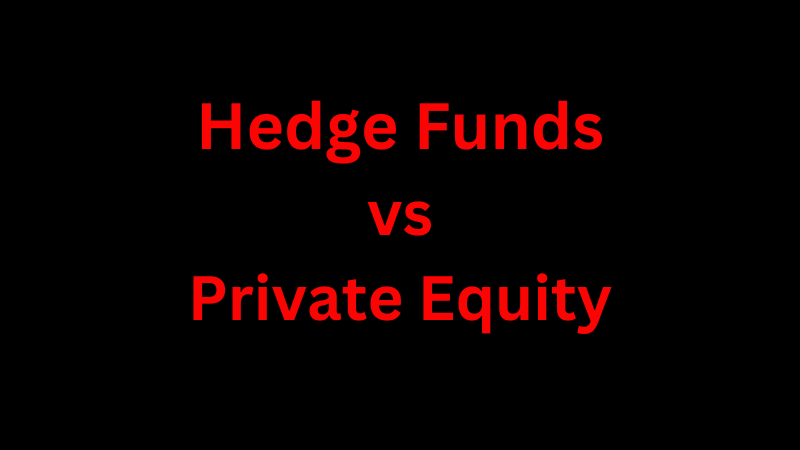Hedge Funds vs Private Equity

Hedge funds and Private equity are two distinct investment vehicles that cater to different investment objectives, risk appetites, and investor profiles. Both strategies fall under the alternative investment category, which means they operate outside the traditional realm of stocks, bonds, and cash. Below we will delve into the fundamental differences between hedge funds vs private equity, analyzing their investment approaches and providing examples to illustrate their distinct characteristics.
- Definition and Purpose
Hedge Funds: Hedge funds are investment funds managed by professional portfolio managers, aiming to generate absolute returns regardless of market conditions. The term “hedge” refers to their ability to employ various strategies to mitigate risk or “hedge” against market downturns. Hedge funds can invest in equities, bonds, derivatives, currencies, commodities, and other asset classes.
Private Equity: Private equity funds invest directly in private companies, either by acquiring significant ownership stakes or entire companies. The primary goal of private equity is to enhance the value of the acquired companies over the investment horizon (usually several years) and then sell or exit those investments at a higher valuation.
- Investment Approach
Hedge Funds: Hedge funds use a wide range of strategies, including long/short equity, global macro, event-driven, and quantitative strategies. These funds can take both long positions (buying assets to profit from their price appreciation) and short positions (borrowing assets and selling them to buy them back at a lower price), allowing them to profit in both bull and bear markets.
Example: Bridgewater Associates, one of the world’s largest hedge funds, employs a macroeconomic strategy, making bets on interest rates, currencies, and other global macroeconomic variables.
Private Equity: Private equity firms typically buy controlling stakes in private companies or delist public companies to take them private. They often use leveraged buyouts (LBOs) to finance their acquisitions, meaning they borrow a significant portion of the purchase price. The focus is on operational improvements, strategic direction, and value creation to sell the investment at a higher valuation.
Example: The Blackstone Group is a renowned private equity firm that has made several successful investments, including the acquisition of Hilton Worldwide and subsequent strategic improvements before taking the company public again.
- Liquidity and Lock-Up Periods
Hedge Funds: Hedge funds offer relatively higher liquidity compared to private equity. Investors can typically redeem their investments on a monthly or quarterly basis, subject to specific notice periods. This flexibility allows investors to access their capital more easily.
Private Equity: Private equity investments have longer lock-up periods, often lasting five to ten years or more. During this time, investors may not withdraw their capital from the fund. This illiquidity provides private equity managers with a longer-term horizon to execute their strategies.
- Risk and Return Profiles
Hedge Funds: Hedge funds can be more dynamic and adaptive, aiming to generate positive returns in various market conditions. While some hedge funds focus on low-risk strategies, others may pursue high-risk, high-reward opportunities.
Private Equity: Private equity investments often involve higher risks than hedge funds, as they involve direct ownership of private companies and are subject to business-specific risks. However, if successful, the returns can be substantial due to the significant value creation potential.
Conclusion
Hedge funds and private equity are alternative investment vehicles catering to different investment objectives and risk tolerances. Hedge funds focus on generating absolute returns through various investment strategies, while private equity firms acquire private companies intending to enhance their value over time.
Both strategies have their unique advantages and risks, and investors should carefully consider their investment goals and risk appetite before choosing between the two. Diversification, research, and professional advice are essential components of a well-balanced investment portfolio that may include both hedge funds and private equity funds.


